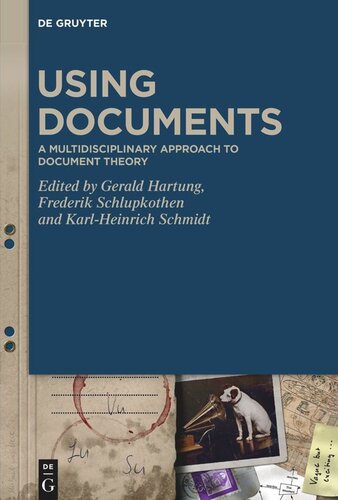

Most ebook files are in PDF format, so you can easily read them using various software such as Foxit Reader or directly on the Google Chrome browser.
Some ebook files are released by publishers in other formats such as .awz, .mobi, .epub, .fb2, etc. You may need to install specific software to read these formats on mobile/PC, such as Calibre.
Please read the tutorial at this link: https://ebookbell.com/faq
We offer FREE conversion to the popular formats you request; however, this may take some time. Therefore, right after payment, please email us, and we will try to provide the service as quickly as possible.
For some exceptional file formats or broken links (if any), please refrain from opening any disputes. Instead, email us first, and we will try to assist within a maximum of 6 hours.
EbookBell Team

0.0
0 reviewsUsing Documents presents an interdisciplinary discussion of human communication by means of documents, e.g., letters. Cultural scientists, together with researchers from media science and media engineering, analyze questions of document modeling, including a document’s contexts of use, on the basis of cultural theory. The research also concerns the debate on the material turn in the fields of cultural studies and media studies.
Looking back on existing work, texts on written communication by the philosopher and sociologist Georg Simmel and by an interdisciplinary French group of authors under the pseudonym Roger T. Pédauque are taken as a starting point and presented afresh.
A look ahead to the future is also attempted. Whereas the modeling (including technical modeling) of documents has to date largely been limited to the description of output forms and specific content, the foundations are laid here for including documents’ contexts of use in models that are grounded in cultural theory.